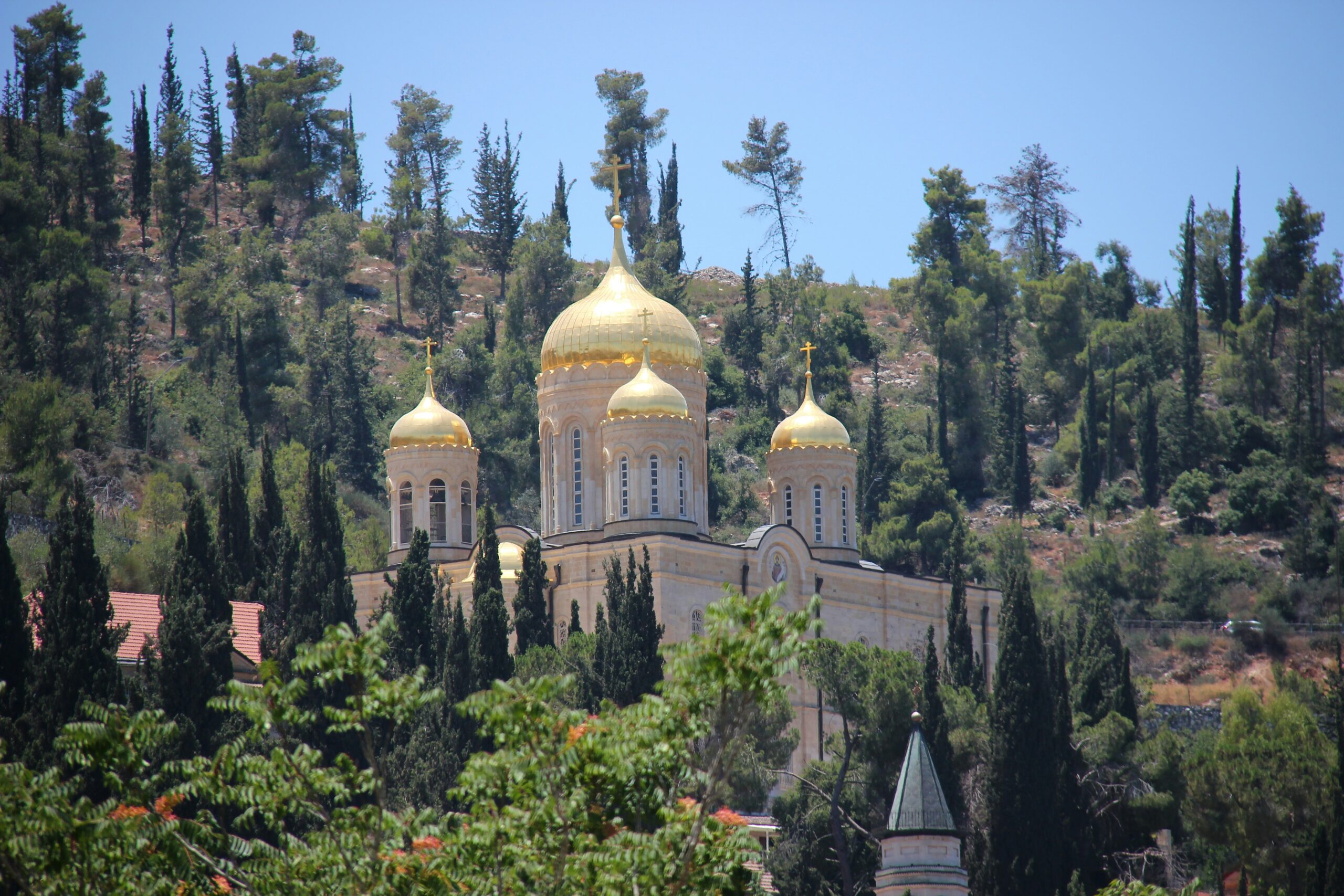The book of Psalms is seen as the Hymnal of the Bible. The Psalms are usually sung in the Jewish Temples and New Testament churches. Many Hymnals and songs of praise are based on the Psalms. The Psalms often express man’s praise to God for who he is and for what he has done. They also express man’s need for God in times of trial and the belief that God will help. There is a wide range of human emotions expressed throughout the Psalms. Some of the feelings expressed are joy, despair and anger etc. For these reasons, the book of Psalms is one to which believers are directed during personal trials or afflictions (Wiersbe,1991). In this article, I will look at Psalms 147:1-11 and see how we can place our delight in the Lord.
1. Praise ye the Lord: for it is good to sing praises unto our God; for it is pleasant; and praise is comely.
2. The Lord doth build up Jerusalem: he gathereth together the outcasts of Israel.
3. He healeth the broken in heart, and bindeth up their wounds.
4. He telleth the number of the stars; he calleth them all by their names.
5. Great is our Lord, and of great power: his understanding is infinite.
6. The Lord lifteth up the meek: he casteth the wicked down to the ground.
7. Sing unto the Lord with thanksgiving; sing praise upon the harp unto our God:
8. Who covereth the heaven with clouds, who prepareth rain for the earth, who maketh grass to grow upon the mountains.
9. He giveth to the beast his food, and to the young ravens which cry.
10. He delighteth not in the strength of the horse: he taketh not pleasure in the legs of a man.
11. The Lord taketh pleasure in them that fear him, in those that hope in his mercy.
(KJV,1987, Psalm 147:1-11)
Psalms 147 starts by expressing praise to the Lord. According to the Oxford English Dictionary, praise means, “To express warm approbation of; to proclaim or commend the excellence or merits of; to speak highly of; to laud (Oxford University Press,2024 v.1).”
The Psalm went on to express that praise is comely. It went on to say that it was a good thing to sing praises. Comely, is defined by the OED as, “In a graceful, beautiful, or becoming manner; in an appropriate or proper manner (Oxford University Press,2024 ad v.2) .” This suggests that praise should be our best and most appropriate response to the Lord. He was showing that praise brings great delight to the Lord. He went on to point out how the Lord builds up Jerusalem, gathering all the outcasts of Israel. Who is an outcast?
The OED refers to an outcast as, “A person who has been cast out of a society, institution, etc.; a person ostracized by his or her friends or social group; an exile, an itinerant……(Oxford University Press,2024 n.1).”
The Lord desires that those who are looked down upon by society and excluded from their community feel like they belong and are an important part of the picture. He does not want them to feel like they are being left behind. He knows how this can affect individuals who have been ostracized.
Healing the Broken-hearted
In verse 3 he talks about the fact that the Lord healeth the broken in heart and bindeth their wounds. The Lord is assuring his people that for those who have been afflicted and wounded in their souls and spirits, he wants to make them whole. Bringing about repair and renewal in their hearts. Psalm 34:18, reminds us that, “The Lord is nigh unto them that are of a broken heart; and saveth such as be of a contrite spirit (KJV,1987, Psalm 34:18).”
God here has been the creator of the universe but is also very active in healing the world. A powerful creator but also concerned with those who are broken-hearted or hurt in any way. The true heart and intent of God is that no one should be left behind.

The Creator’s Majesty
According to verse 4, he tells the number of the stars and calls them all by names.
Isaiah40:26 also confirms this and commands his people to,
“Lift up your eyes and look to the heavens: Who created all these?
He who brings out the starry host one by one
and calls forth each of them by name.
Because of his great power and mighty strength, not one of them is missing. ( KJV,1987, Isaiah 40:26).”
The Lord wanted his people to look up to the sky and observe and take note of it. However, with that observation he wanted his people to begin to question how all of this came into being. He wanted them to recognise that it is he the Lord who created such wonder and is also responsible for calling them forth and naming them through his power and wisdom. Not only is he the creator but he also took great care in ensuring that nothing was missing from its rightful place. The intent here is that his creation would be deeply moved by that which he had created and in doing so would also be in awe of the creator.
Verse 5 went on to acknowledge the immense power of the Lord and noted that his understanding is infinite. The implication here is that human understanding is limited in comparison to God whose understanding is unmeasurable. It is little wonder then why Proverbs 9:10-12 states that, “The fear of the Lord is the beginning of wisdom: and the knowledge of the Holy is understanding. For by me thy days shall be multiplied, and the years of thy life shall be increased. If thou be wise, thou shalt be wise for thyself: but if thou scornest, thou alone shalt bear it (KJV,1987, Proverbs 9:10-12).” Here we see that seeking wisdom and understanding from the Lord results in many blessings for the individual who chooses to do so. Firstly this individual experiences a longer lifespan, and also this wisdom that the individual gains is for their personal development and benefit.
God’s Justice
In verse 6 the writer pointed out that the Lord lifted or elevated the meek whilst on the other hand the wicked had been cast to the ground experiencing demotion.
Who are the meek?
The meek are those that are, “Humble, submissive; frequently collocated with mild. Not proud or self-willed; piously humble; patient and unresentful under injury or reproach… (Oxford University Press,2024 adj.& n. ).” This clearly shows that great care needs to be taken to ensure that one maintains a sense of humility before the Lord.
Thanksgiving and Worship
The Psalm encourages in Verse 7 to sing thanksgiving unto the Lord by way of using the harp. It is of great importance for us to enter before the Lord with a sense of thanksgiving for everything that he has done. For past victories as well as for future victories. Thanksgiving allows one to deeply analyse God’s faithfulness that would perhaps otherwise go unnoticed. This sort of gratitude can also move the heart of God to release further blessings.

God’s Provision for Creation
Later on, he said that the Lord covers the heavens with clouds and prepares the rain for the earth. It seems here that the Lord is very much active in the preparation of the different seasons ensuring that everything within creation is well taken care of. The writer went on to point out that He also makes the grass grow upon the mountains. Emphasizing here that he is also responsible for the creation and maturation of natural resources. Also wanting us to take note of the beauty of all that was created.
He went on in verse 9 to talk about how the Lord gives food to the beast and also feeds the ravens that cry. The writer wanted us to understand that God is a provider to all that he has created. He is very attentive to the voice of those who cry even to the raven, which some would regard as insignificant. The scripture invites us to understand that as small as a raven is because it was created by God he cares so much for it that its very cry for help will not be ignored by God. Therefore if a small bird created by God is not ignored, then it is safe to say that the Lord will not ignore the cries of those who have been created in his image.
What Truly Delights the Lord
Verse 10 points out that the Lord does not delight in the strength of the horse, nor does he take pleasure in the legs of a man. Even though all of that is good, one’s accomplishments are not what pleases the Lord most.
He went on to say in verse 11, that the Lord is most delighted in those who fear him. He is pleased with those who put their hope in his mercy. Those who recognise their human weaknesses and frailties and realise they need God’s mercy in all aspects of their life. Those who realise that they haven’t got life all figured out and recognise that they need divine guidance. A level of humility to look to the creator of the universe to provide answers to difficult questions whilst navigating life’s challenges.
Conclusion
To conclude, Psalm 147 encourages believers to embark upon a deeper worship of the creator. It also highlighted that the Lord is much more interested in unity than division. It is also important to note that the Lord’s heart is to heal deeply all those who are hurting. It is also an invitation to deeply reflect upon his creation, the wisdom of God in ordering the universe and everything within. The hope is that reflection and contemplation would lead one into a deeper love and worship of the creator. The very essence of who he is and what he has done would lead the individual to delight more deeply in him. This deep connection would cause mankind to run towards God rather than away from him.
Reference
1.King James Version.(1987).Biblegateway.com/https://www.biblegateway.com/passage/?search=Psalm%20147&version=NIV
2.Oxford University Press.(2024).Comely. Oxford English Dictionary. Retrieved November 2024.
3.Oxford University Press.(2024).outcasts. Oxford English Dictionary. Retrieved November 2024
4.Oxford University Press.(2024).Praise. Oxford English Dictionary .Retrieved November 2024
5.Wiersbe,W.W.(1991).Nelsons Quick Reference:Chapter by Chapter Bible Commentary. Nashville,Tennessee. Thomas Nelson,Inc.
.


